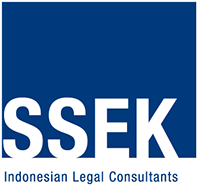 Indonesian labour and employment laws do not expressly impose or regulate non-competition obligations of employees with the exception of the Chief Representative of the local representative office of an overseas principal.However, Indonesian law recognises the principle of freedom of contract. This principle is codified in Articles 1337 and 1338 of the Indonesian Civil Code. The parties to a contract are free to include any provisions they wish, subject only to the mandatory provisions of Indonesian law, as well as the general principles that contract terms must be implemented in good faith and not contrary to public order. With regard to non-competition during the period of employment, it is essential to include a provision in the employment agreement imposing a duty on the employee not to compete or otherwise act in conflict with the interests of the employer. The same provision may be set forth in the so-called Company Regulation, which sets forth the employer’s work rules registered with the Ministry of Labour and is updated every two years, or in the Collective Labour Agreement (CLA) if there is a union or unions representing a majority of employees. Violation of that contractual duty would be grounds for termination. Non-competition following employment We do not routinely include non-compete and non-solicitation clauses in the employment contracts of ordinary employees. However, for senior executives and other high-risk employees, such constraints may be commercially warranted. In that case, given the constitutional right to work and the lack of judicial guidance, we recommend that the clauses set reasonable geographic and time limitations, and for greater certainty, include some compensation during the restraint period. The enforceability of non-competition and non-solicitation covenants would likely depend upon the particular factual context. In practice, at least for multinationals operating in Indonesia, it is common for the former employer to alert the new employer about the existence of such constraints as well as confidentiality obligations of the former employee, and address the concern amicably. Injunctive relief is not generally available in the Indonesian courts. In principle, an employer could sue its former employee in the District Court system – not the Labour Courts – for direct damages under Articles 1243 – 1252 of the Civil Code. Confidentiality obligations and IP rights Under Indonesian Law No. 30 of 2000 regarding trade secrets, employers also enjoy protection of their trade secrets for methods of production, methods of processing, methods of sale and other information in the area of technology and/or business that has economic value and is not otherwise available to the general public. Under the Trade Secrets Law, the employer can commence an action in the District Court for direct damages and injunctive relief in connection with any person’s unauthorised disclosure of trade secrets. ––––––––––– |
Indonesia
Related Articles by Firm
Cryptoassets in Indonesia: Regulation Clearing Way for Trading of 229 Cryptoassets Issued
Indonesia’s Commodity Futures Trading Supervisory Body (Badan Pengawas Perdagangan Berjangka Komoditi or “Bappebti”) has issued the long-awaited list of cryptoassets that can be legally traded in Indonesia.
Indonesian government imposes VAT on imported digital goods and services
The tax particularly targets intangible goods and services provided by foreign tech companies that lack a physical presence in Indonesia.
Indonesia’s New Negative Investment List
Presidential Regulation No. 44 of 2016 regarding the List of Business Fields That Are Closed and Business Fields That Are Conditionally Open...
Revisiting the Indonesian Language Law
Indonesia’s Law No. 24 of 2009 regarding the National Flag, Language, Emblem and Anthem (the Language Law) was very likely ...
Indonesia Update
New Body Set Up to Resolve Disputes in the Construction Sector; and a Change to the Mediation Process ...
Indonesia’s Anti-Monopoly Law: Changes Ahead?
Since its enactment in 1999, Indonesia's Anti-Monopoly Law has never been amended. The New Anti-Monopoly Law has been prioritized for enactment by the Government of Indonesia. Here's a look at some proposed major changes.
Non-compete agreements and protecting confidential information
Indonesian labour and employment laws do not expressly impose or regulate non-competition obligations ...
Indonesian regulatory framework for real estate investment funds
In late 2015, the Indonesian Minister of Finance issued Regulation No. 200/PMK.03/2015 regarding Tax Treatment of Taxpayers and Taxable Entrepreneurs ...
Indonesia Widens Door to Foreign Investment
Indonesia released its tenth economic policy package on February 12, 2016, with a focus on boosting foreign direct investment and protecting small and medium enterprises and cooperatives.
Indonesian Import License Regulations
The Indonesian Minister of Trade issued two new regulations which amended importation guidelines effective 1 January 2016.
Ownership of homes or residences by foreigners in Indonesia
Indonesia issued Government Regulation No. 103 of 2015 regarding the Ownership of Homes or Residences by Foreigners Residing in Indonesia ...
New regulations bring big changes to the Indonesian manpower sector
Two recently released regulations have introduced important changes to the Indonesian manpower sector. While the changes should generally be welcomed by the business ...
Update: Guide to Background Checks in Indonesia
Background checks on employees are not expressly regulated by Indonesian employment laws but certain background checks are subject to the applicant or employee's consent.
Foreign investment restrictions in Indonesia
Restrictions on foreign shareholders in Indonesia are set out in the most recent Negative Investment List, contained in Presidential ...
New Manpower Regulation Eliminates Controversial Work Permit Requirements in Indonesia
Indonesia eases requirements for work permits of expatriates working in the country.
Establishing a presence from abroad
The most common option for an overseas company as a foreign investor to establish a presence in Indonesia is by setting up a limited liability company (Perseroan Terbatas or PT) with foreign ownership ...
Regulatory framework for insurance business
The main legislation for insurance and reinsurance business in Indonesia is the newly enacted Insurance Law, issued on October 17, 2014. The new Insurance Law ...
Indonesia: New Manpower Regulation
Foreign domiciled directors and commissioners must have Indonesian work permit ...
Indonesian Rules on E-Signatures
E-signatures in Indonesia are regulated by Law No. 11 of 2008 regarding electronic information and transactions (Law No. 11/2008) and Government Regulation No. 82 of 2012 regarding the implementation ...
Negative investment list vs. cabotage principle
In furtherance of Indonesia’s commitment to welcome the implementation of the ASEAN Economic Community (AEC) in 2015, ...
Local Authority Curbed in Indonesian Mining Sector
The Indonesian Government appears to be getting serious about stripping local authorities of the power to issue mining licenses.
Mandatory use of Rupiah in Indonesia
Indonesia’s central bank, Bank Indonesia (BI), recently issued BI Regulation No. 17/3/PBI/2015 regarding the mandatory use …
Indonesia: New Regulation on Public-Private Partnerships (PPP)
Public-private partnerships (“PPPs”) interest infrastructure investors in Indonesia for a number of reasons ...
Compliance road map for companies
Compliance is an important issue for foreign investment companies doing business in Indonesia. As international organisations, foreign investment companies are not only …
Food export regulations and licences
Export activities in Indonesia can be carried out by individuals, institutions and business entities. Export goods are classified as free export goods, which are goods that have no restrictions or prohibitions on …
Franchising rules and regulations
With a population of over 250 million, Indonesia is an attractive country for investors, particularly those interested in the distribution, retail and franchise sectors. …
Indonesia Employment Law: Quarterly Review
Update for the 4th quarter of 2014 including: Increased Protection for Outsourced Workers; New Rules on Hiring Expatriates; and Regulations for those Employed in Oil and Natural Gas Business Activities...
New Indonesian Geothermal Energy Law
Indonesia is one of the world’s most volcanically active countries and among the countries with the greatest geothermal energy potential. Dwindling production of traditional energy …
Foreign investment in Indonesian real estate
Indonesia’s Agrarian Law provides that foreigners can only acquire right to use (hak pakai) title for land if they reside in Indonesia. If foreign investors wish to engage in …
Employment Law: Hiring expats, holidays and more
The Indonesian Government has issued a Regulation on the employment of foreign workers and the implementation of education and training programs for Indonesian companion employees. Presidential …
New Negative List Introduces Changes to Health Investment in Indonesia
The Indonesian Government has released a new list of business fields that are closed to investment and business fields that are conditionally open to investment …
Indonesian-language label requirements
The Minister of Trade has updated Regulation No. 67/M-DAG/PER/11/2013 regarding the Obligation to Affix Indonesian-Language Labels on Goods with the issuance of Minister of Trade Regulation No. 10/M-DAG/PER/1/2014 …
Corporate liability for corruption
Anti-corruption compliance is rightly a focus of companies operating in Indonesia. One of the more interesting questions for such companies, particularly foreign investment companies, is whether the company …
Indonesia’s New Negative Investment List
The Indonesian Government has issued a New Negative List that determines which business fields are open, fully or partially with conditions, to investment, including foreign investment. The New Negative List, issued …
New Trade Law and its effect on business
Indonesia’s House of Representatives (Dewan Perwakilan Rakyat or DPR) recently passed into law a long-awaited trade bill. The new Trade Law will act as an underlying regulation for other trade-related …
Processing minerals for export now mandatory
After a long and contentious discussion involving many interested parties, the Government of Indonesia issued a regulation that bans the …
Indonesia’s Language Law and business agreements
In a landmark decision on June 20th, 2013, the West Jakarta District Court annulled a Loan Agreement because it was executed in English …
Indonesian Court Annuls Loan Agreement on Language Law: What Does It Mean for Your Agreements?
In a landmark decision on June 20, 2013, the West Jakarta District Court annulled a Loan Agreement entered into between a local borrower and an offshore lender because it was executed in English only ...
Keeping up with shifting foreign investment rules
Less than six months after issuing new investment guidelines and procedures, Indonesia’s Capital Investment Coordinating Board (BKPM) has …
New divestment rules for mining companies
On September 13th, 2013, the Minister of Energy and Mineral Resources (MEMR) issued MEMR Regulation No. 27 of 2013 regarding …
New import rules for cell phones in Indonesia
Indonesia’s Minister of Trade has issued a new regulation that specifically governs the importation of, among other items, cellular telephones …
BKPM introduces new investment rules in Indonesia
Indonesia’s Capital Investment Coordinating Board (BKPM) has issued BKPM Regulation No. 5 of 2013 regarding Guidelines and Procedures …
Related Articles
IHC Magazine: April 2024 issue featuring Firms of the Year 2023 Results
As we round off the first quarter of this year, we are proud to showcase our IHC Firms of the Year for 2023. These firms have been selected by our IHC community in recognition of their invaluable contribution to their clients’ ...
Related Articles by Jurisdiction
Indonesia: The Omnibus Law on Job Creation
What the bill has to offer ...
Jakarta In-House Congress
Alongside co-hosts Ashurst; Oentoeng Suria & Partners; Assegaf Hamzah & Partners; Clyde & Co; Dentons Rodyk & ...
Indonesian regulatory framework for real estate investment funds
In late 2015, the Indonesian Minister of Finance issued Regulation No. 200/PMK.03/2015 regarding Tax Treatment of Taxpayers and Taxable Entrepreneurs ...
Latest Articles





































 SSEK Legal Consultants
SSEK Legal Consultants Rusmaini Lenggogeni
Rusmaini Lenggogeni Denny Rahmansyah
Denny Rahmansyah




